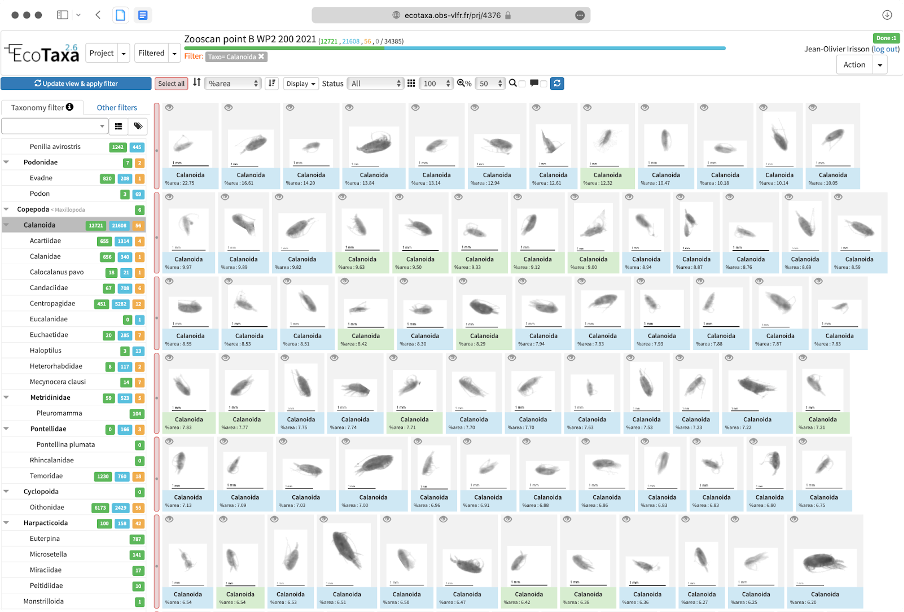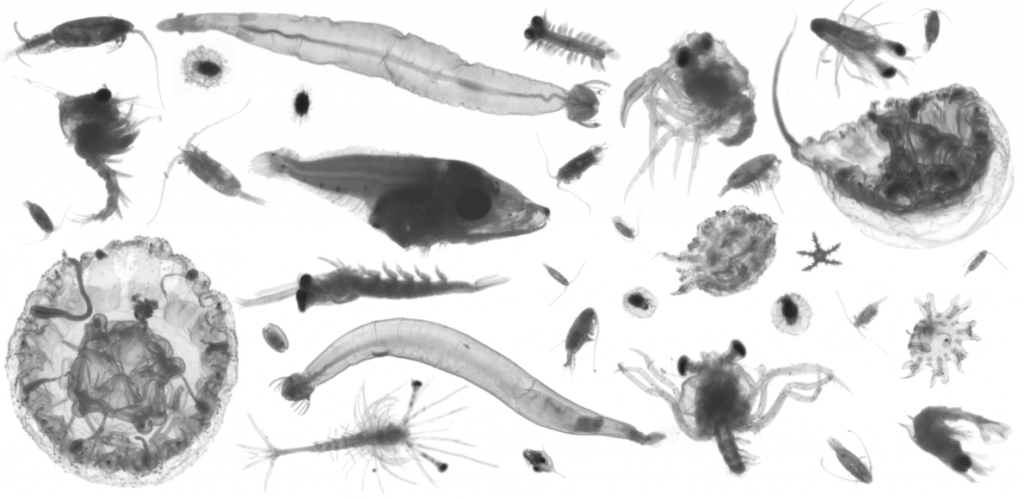Overview of the Services:
EcoTaxa is a web application designed to facilitate the upload, classification, and export of images of individual organisms, accompanied by metadata. The platform employs machine learning algorithms for taxonomy classification and allows users to export resulting data in formats conducive to scientific analysis or upload to international databases. Primarily serving a global community of users, EcoTaxa specialises in managing plankton images obtained through quantitative imaging instruments such as ZooScan, UVP, FlowCam, and IFCB. With a focus on efficiency, the application streamlines the process of uploading, classifying, reviewing, and exporting large batches of images, often organized into projects such as cruises or time series. The database contains a substantial 360 million records, with an average of 4 million new images uploaded monthly, and 150 million records confirmed by human taxonomists.

Users and Stakeholders the Service is Aimed At:
EcoTaxa targets an international community of users, particularly those involved in plankton image analysis using quantitative imaging instruments. The platform’s user base is diverse, including scientists, researchers, and practitioners interested in marine ecology and plankton biodiversity. Stakeholders encompass contributors of data, owners of quantitative imaging instruments (e.g., ZooScan, UVP, FlowCam), and organisations involved in coastal observation initiatives, such as JERICO-RI and European countries deploying plankton imaging instruments along their coasts.
Supporting the Objectives of JERICO-RI and Coastal Observation:
EcoTaxa contributes to the objectives of JERICO-RI (Joint European Research Infrastructure Consortium for Ocean Observing Systems) and coastal observation initiatives by enhancing the processing and upload of quantitative plankton imaging data to EU databases. As part of the JERICO project, EcoTaxa has undergone improvements, including the development of processing pipelines for instruments like UVP, CytoSense, and CPICS. Additionally, efforts have been made to identify and export key metadata elements required by hosting databases, ensuring alignment with EMODnet Biology / EurOBIS standards. These enhancements streamline the flow of data from instruments to databases, supporting comprehensive coastal observation and marine research.
Changes Made During the JERICO-RI Programme:
During the JERICO-RI programme, EcoTaxa underwent significant changes to optimise data flow. Prototyped processing pipelines were implemented for various instruments, with full implementation for UVP and prototype versions for CytoSense and CPICS. Metadata elements essential for hosting databases were identified, their availability in EcoTaxa datasets was assessed, and a best practices guide was created. These changes ensure the efficient export of key metadata alongside data, aligning with the standards of EU databases.
Future Improvements and Changes:
Ongoing developments within EcoTaxa align with future objectives. Finalizing input pipelines for target instruments and making them available to the community is a priority. Additionally, modifications to the user interface are planned to facilitate the identification of key metadata within the existing 360 million records. This will enable both new and existing data to be uploaded seamlessly to a stable, referenceable database, further enhancing the platform’s utility and efficiency.

